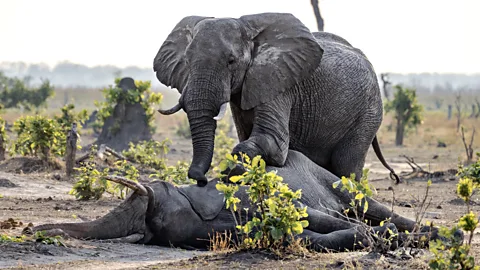
Understanding Elephant Emotions Through a Mother’s Grief
Elephants are often called gentle giants, not just because they are the largest
herbivores on Earth, but also for their incredible emotional depth and rich social
bonds. Researchers and wildlife observers have documented behaviours in
elephants that indicate they experience grief, empathy, and long-term memory over
the years. One of the examples of their emotional intelligence cam be seen from
their response to death, where elephants appear to mourn their dead, showing signs
of sorrow, grief, and remembrance that mirror human behaviour in surprising ways.
An incident that occurred in Malaysia in May 2025 not only drew widespread
sympathy but also brought their emotional intelligence into the spotlight. After a
young elephant calf died while crossing a highway, the mother refused to leave her
child alone and stood by her child’s remains for more than 5 hours, pressing against
the vehicle, trying to free her calf that already lay unmoving beneath, and visibly
distressed until wildlife officers intervened. This heartbreaking stand was not instinct
but deep grief.
This behaviour mirrors observations in the wild, where elephant herds gather around
deceased members, gently touch their bones with their trunks or feet, and often
remain near the remains for some periods. Even years later, when some elephants
have returned to sites of past deaths, they pause and quietly pay their respects. This
isn’t random. This indicates not only a capacity for grief but also a powerful memory
and sense of social connection that stretches beyond the moment, something very
few animals display so clearly.
Elephants are also known to be supportive, and they comfort each other during
distress. When one elephant is hurt or upset, the other elephants usually approach
to offer physical reassurance, be it by trunk touches or close body contact. They
respond to the cries of their calf or distressed members with care, showing strong
empathy. This bond is the foundation of their matriarchal society, where family and
connection are everything for them. Much like humans, they are deeply social and
their lives are shaped by long-term relationships.
By understanding elephant emotions, we are not admiring them more. It also
reinforces the importance of animal conservation, especially for elephant
conservation. They are so much more than their giant size; they are intelligent,
emotional beings that are capable of love, grief, and memory. By protecting them, we
could protect these gentle giants' lives that deserve to be respected.